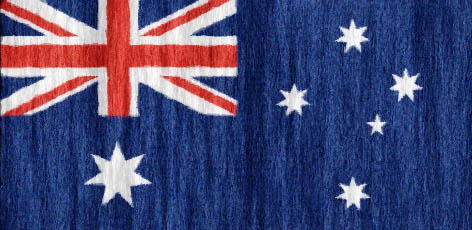AFP/Port Moresby
Pacific island leaders have agreed to disagree on how to tackle climate change, after Australia and New Zealand blocked a bid from low-lying island nations for a tougher global target.
Problems with negotiations behind closed doors at the Pacific Islands Forum in Port Moresby were evident with the official communique, which was due on Thursday evening, not released until mid-morning yesterday.
The 16-nation group consists mainly of small island nations, most of which are susceptible to rising sea levels.
They wanted to send a clear message to climate talks in Paris in December that the average global warming should be limited to 1.5° Celsius (2.7° Fahrenheit) over pre-Industrial Revolution levels.
However, the UN mandate is for no more than a 2.0° rise, and the stumbling block at the conference was the refusal of the two regional powers Australia and New Zealand to commit to the lower number.
The carefully-worded communique noted that the Pacific Island states were among “the most vulnerable and least able to adapt and to respond” to the consequences of climate change.
The Pacific Islands Forum leaders “declare that an increase of 1.5° Celsius would severely exacerbate the particular challenges facing the most vulnerable smaller island states of the Pacific and urge all effort be made to stay within the global temperature goal”.
At a press conference ahead of the communique release, Kiribati President Anote Tong said that it was an agreement to disagree.
“It’s not the best outcome that we would have liked,” he said of Australia and New Zealand’s refusal to back a figure lower than the UN mandate.
“I think we must respect that. Whether we accept that or not is a different question,” Tong said.
Many of the island states are barely 2m above sea level, which the leaders have said added weight to their lower target.
They faced serious problems “on the frontline” of global warming and were in a very different position to Australia and New Zealand, Tong said.
The forum mostly comprises poor island states and Fiji Prime Minister Voreqe Bainimarama in May called for an end to Australia and New Zealand’s “undue influence” on Oceania’s largest regional grouping.
Ahead of the meeting, the leaders of the group’s six smallest members said the upcoming climate talks in Paris were the last chance for the world to reach an agreement that could save their vulnerable island nations.
Tuvalu Prime Minister Enele Sopoaga said he would continue to push for 1.5° to be a legally binding target. “That’s the position of the Forum island countries. It is 1.5° and not 2.0°. We will take it to Paris and battle it out there.”
Australian Prime Minister Tony Abbott said Australia would go to Paris with “very ambitious targets” and he believed they could get emissions down.
New Zealand leader John Key said his country and Australia stood by the 2.0° target but accepted that low-lying states were particularly vulnerable and they would “seek an even more ambitious target in Paris”.
Australian minister’s ‘lapping’ waves quip falls flat
An Australian minister’s quip about “water lapping at your door” after talks with Pacific island leaders concerned about rising sea levels was criticised yesterday as a “bad joke”.
Immigration Minister Peter Dutton made the comment to Prime Minister Tony Abbott – who had just returned from the Pacific Islands Forum in Papua New Guinea’s capital Port Moresby – as a meeting on refugees ran late.
Dutton said that the event was running to “Cape York time”, a reference to the remote Aboriginal area in Australia’s far northeast where Abbott recently visited, to which the prime minister replied: “We had a bit of that up in Port Moresby.”
“Time doesn’t mean anything when you’re about to be, you know, have water lapping at your door,” Dutton added.
Footage from media which had been invited to cover the start of the meeting shows Abbott laughing somewhat awkwardly at that comment before Social Services Minister Scott Morrison points out the sound boom microphone above their heads.
The Pacific Islands Forum, a 16-nation group of mainly small island nations, some of which are susceptible to rising sea levels, wrapped up this week with leaders agreeing to disagree.
Greens Senator Larissa Waters said that Pacific leaders, particularly those who believe their islands are in danger of inundation from climate change, would be unimpressed.
“I think our regional neighbours are going to be utterly horrified at the disdain that our prime minister has shown them,” she told the Australian Broadcasting Corporation.
Labor opposition leader Bill Shorten echoed comments made by United States President Barack Obama earlier this year that “any leader who treats climate change as a joke isn’t fit to lead”.
“It was a bad joke by a minister who is a bad joke,” Shorten told reporters.
Dutton has refused to explain what he meant by the comment, saying only that it was a “private conversation with the prime minister”.
“I don’t intend to comment publicly on that,” he said.

